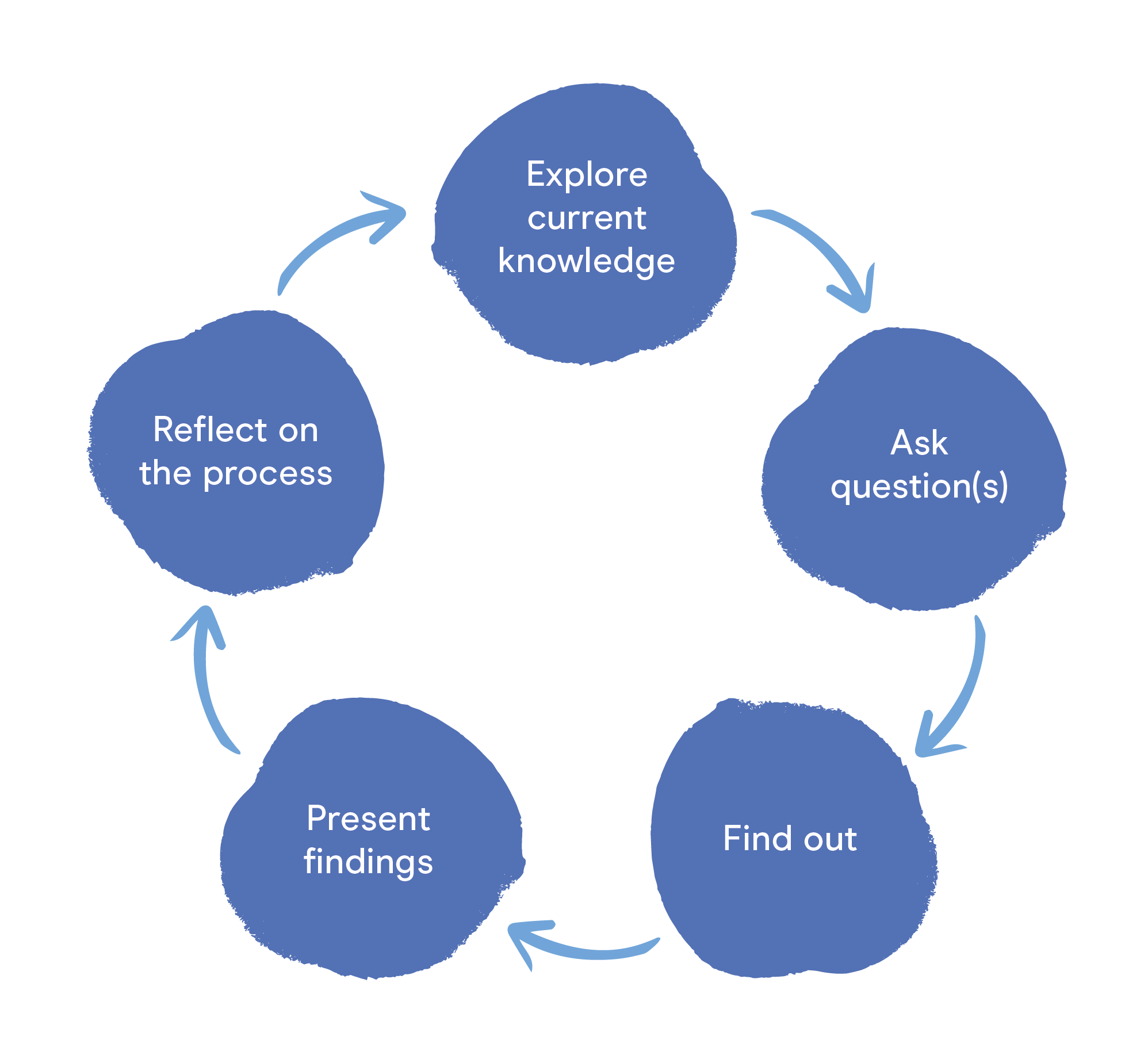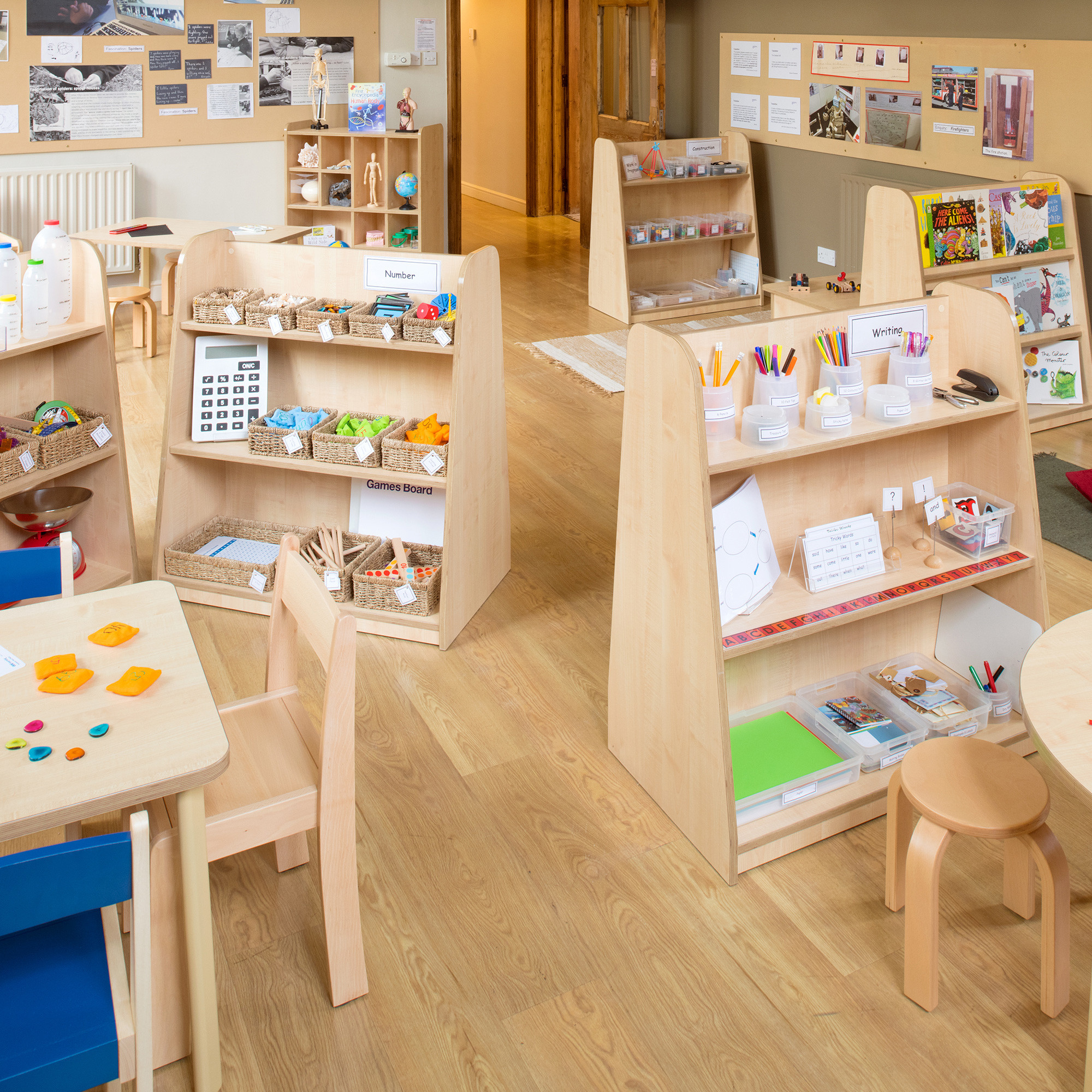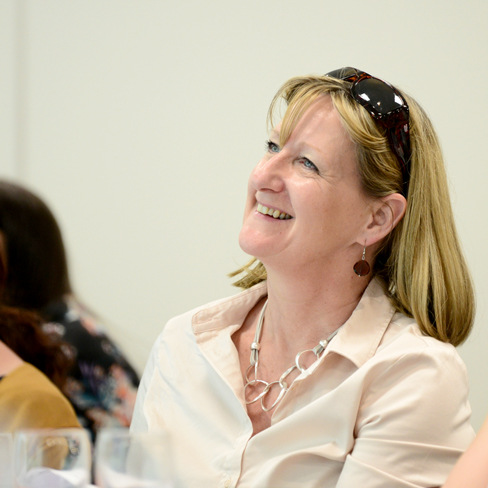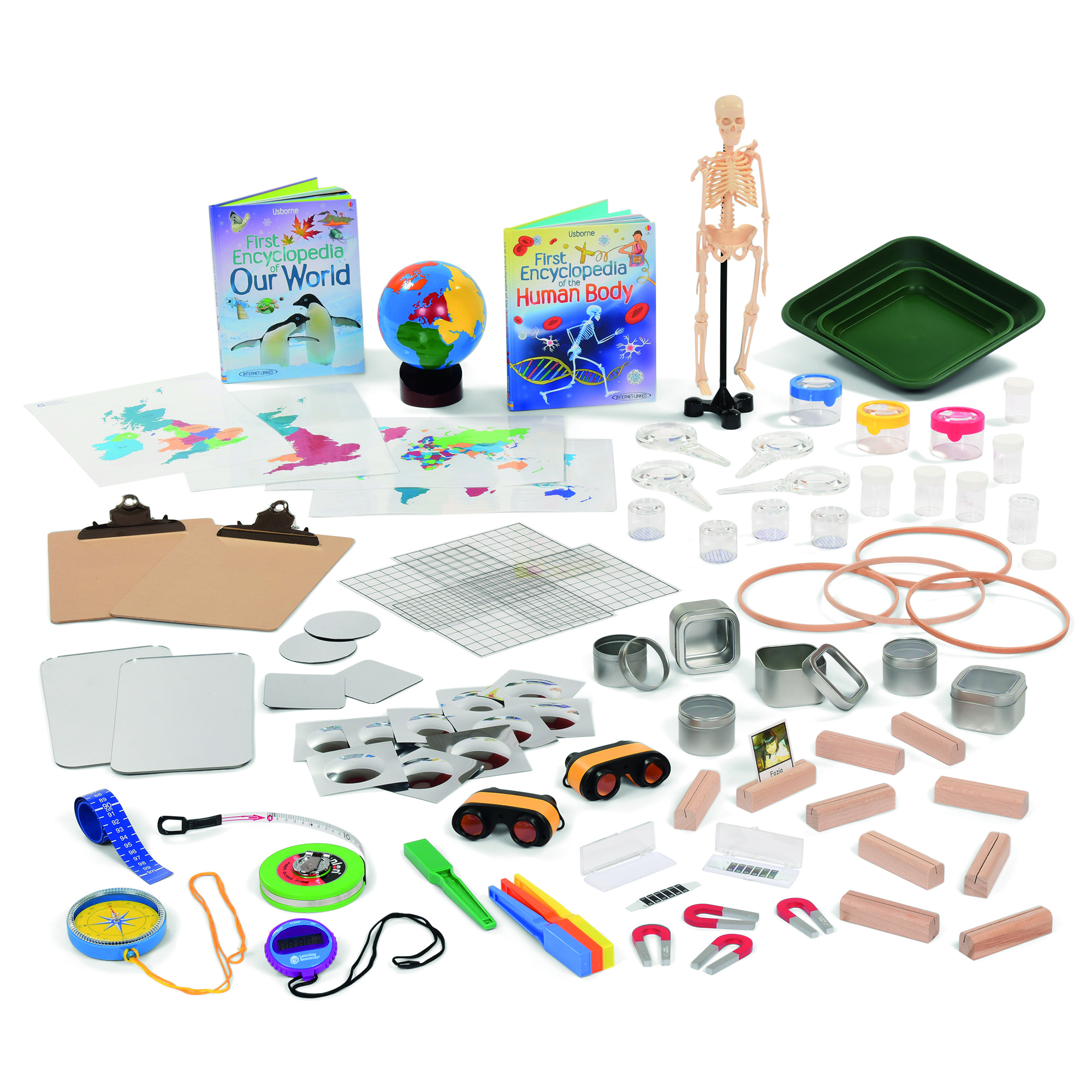Enquiry Based Learning
So much more than ‘Go find out….’
‘Inquiry is not a ‘subject’ but rather a stance and a mindset for both educators and learners.’
Kath Murdoch
Enquiry (or Inquiry) is often seen as an approach that distracts from teaching, something superficial. It can bring to mind free- choice ‘Projects’; children choosing an area of focus, copying illustrations and text, cutting and sticking images with little or no understanding, and there is no doubt that when done badly without careful planning or thought, it may be little more than this. This misunderstanding may partly arise from the belief that Enquiries are led entirely by the children: in fact at every stage, the role of the adult is key.
What do we mean by Enquiry Based Learning?
We know that learners are more engaged and motivated when they are interested. Enquiry Based Learning (EBL) takes account of children’s interests, building them into the learning wherever possible. It taps into their natural curiosity and allows it to flourish. The process of Enquiry emphasises the need to make links between areas of learning, developing transferable skills- being organised, critical thinking, problem solving. Children collaborate and learn to reflect, finding ways to share their progress with a wide range of audiences.
There are various Enquiry models, but they broadly follow the sequence below:

Introducing Enquiry Based Learning
Effective EBL takes time to embed as the skills involved need careful planning and teaching. The degree to which children can enquire depends upon the ability they have to pose ‘good’ questions, identify, and access sources and present their learning. As children grow in experience, the level of support and guidance they need will change. In the later stages of KS2, children who have experienced this approach for several years, may well be able to decide on the focus of an enquiry and work with a large degree of independence. Children in KS1, on the other hand, will need adults to scaffold and support their exploration and learning.
It is worth considering different opportunities or levels of enquiry in relation to your own teaching. When we see Enquiry as a stance rather than a separate subject, opportunities arise almost daily in our settings: Which bird laid the egg we found? How does the hole punch work? How can we improve the playground? How will we get to the Museum? Effective EBL requires spontaneity so that we can respond to sudden fascinations and questions -from exploring frost patterns on an icy morning, to the discussions prompted by a fox running across the playground.
A provocation or enhancement is a great starting point, ‘What is the mystery object?’, as is a child’s question-How does blood move around the body? Initially, children will need guiding through each stage, perhaps with a single question as a focus. When considering long-term plans, a slight shift in approach can make a big difference, turning a ‘Topic’ into an Enquiry. This can be done by promoting curiosity and questioning. An alternative to delivering a topic as a fully pre planned package might be to start with a series of questions to nurture thinking skills- How are houses built? How do animals survive in the cold? Why do we feel warm after exercise?
A further approach requires the practitioner to select a particular area/topic and then allow some choice within this. For example, within a focus on transport, children could choose to focus on trains, boats, or cars. What is important is that they have guidance and that we base this on what we know children will be able to achieve. Put very simply, we can’t always give children ‘free choice’. A group may be fascinated by tigers but allowing them to develop an enquiry based on a visit to a zoo where there are none, will not be a success. They could, however, be asked to choose (or be carefully ‘directed’ to choose) from a restricted number of animals that you have planned to focus on during the visit, knowing that you can provide further resources for children to use.
The quality of sources provided is key. We know that asking children to find information on the internet or in books without adult support, is challenging for all sorts of reasons. Whatever the Enquiry, we must make sure that we can provide appropriate visits, books, fact sheets, videos, images, artefacts and so on to support it- as part of direct teaching sessions when necessary. Remember too, that ‘experts’ are a fantastic source and that they don’t always need to be specialists such as the Police: colleagues, families and others from your local community can be a rich opportunity to develop skills and knowledge on a wide range of topics or Enquiries. First hand, meaningful information about local history, animals, the geography of the school catchment area or physical skills such as how to build a brick wall, can all be brought to life with an interesting visitor or visit.
An environment for Enquiry Based Learning
It is important to remember that effective EBL begins with the adult. With this in mind, we need to ask ourselves a crucial question- kind of practitioner are we? Do we openly enquire, question, puzzle, and wonder? Are we open to new experiences? Do we model the characteristics of an effective learner? Think about your current classroom: is it a place where curiosity is valued and children are confident to question, without fear of being wrong?
A good Enquiry- led teacher welcomes and values questions, knowing that they can be a way in- to challenge, extend, and deepen learning. The ability to be flexible is key- plans will be modified and timetables changed as you respond to children or events, so be prepared to take a risk and let go of the reigns, accepting that learning may take a different direction.
For EBL to be successful, the foundations need to be in place: high quality continuous provision with resources that intrigue and entice, in an atmosphere where children can demonstrate their thinking and ideas in different ways: writing, reading, drawing, painting, building, sculpting, designing, calculating, performing…. Direct teaching will continue, linked to the Enquiry where it is relevant but make sure you avoid tenuous links. For example, teaching an aspect of data collection would work well within an Enquiry on transport but other areas may need teaching separately. Knowing which curriculum areas do not fit within an Enquiry is as important as planning those which do.
Things to think about
- Consider how you can create a more Enquiry-led environment on a day-to-day basis by identifying opportunities for children to explore solutions
- Reflect on how much practical research and investigation is possible within your selected Enquiry. ‘Superheroes’ can be an engaging theme, but it doesn’t lend itself to first-hand exploration in the way that the local supermarket does
- Plan with children’s interests in mind. but remember that you are also the person who can inspire new fascinations
Enquiry Based Learning is demanding, for us as well as the children. But take the risk, make a small shift in approach and watch your children demonstrate their enthusiasm, confidence and competence as they learn to take ownership of their own learning.
“Tell me and I forget, teach me and I may remember, involve me and I learn.’’
Benjamin Franklin
Find Out More

How effective is your KS1? Join our KS1 Roadshow Tour where we invite KS1 teams to consider how to realise the learning potential of their environment and join us for a guided tour of the Early Excellence model classroom.

Join our Ofsted Senior Leader Briefing to explore the vital relationship between Reception and Key Stage 1, emphasising cross-phase collaboration, whilst continuing to value the uniqueness of the early years.

Spark curiosity and inspire future inventors with our Enquiry Area resources. Including a range of artefacts and resources to inspire the researchers and inventors of the future as children examine and experiment with ideas.
